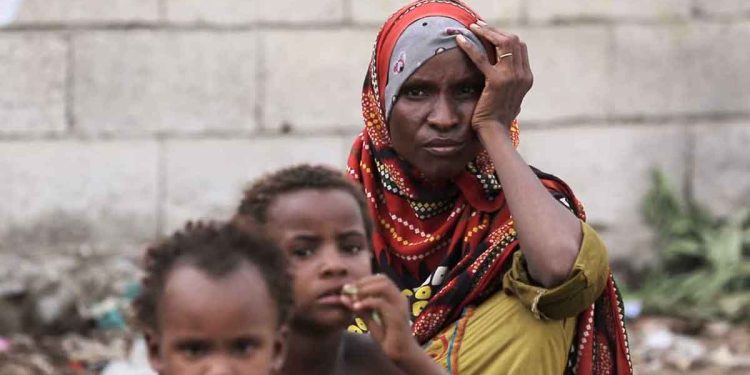On Thursday, February 24, 2022, the United Nations World Food Programme (WFP) has warned that the countdown to catastrophe begins in Yemen as funding for food assistance dwindles.
Yemen is spiralling into a catastrophe as humanitarian funding dries up, forcing the United Nations World Food Programme (WFP) to scale back food assistance to millions of hungry families, WFP Executive Director David Beasley warned, as he ended a two-day visit to the conflict-ravaged country.
“We have no choice but to take food from the hungry to feed the starving and, unless we receive immediate funding, in a few weeks we risk not even being able to feed the starving. This will be hell on earth”, Beasley said.
The escalation of conflict in Ukraine is likely to further increase fuel and food prices, and especially grains, in the import-dependent country. Food prices have more than doubled across much of Yemen over the past year, leaving more than half of the country in need of food assistance, he added.
He pointed out that higher food prices will push more people into the vicious circle of hunger and dependence on humanitarian assistance.
“It has been less than a year since I was in Yemen, and it is worse than anyone can possibly imagine. Yemen has come full circle since 2018 when we had to fight our way back from the brink of famine, but the risk today is more real than ever,” said Beasley.
“And just when you think it can’t get any worse, the world wakes up to a conflict in Ukraine that is likely to cause economic deterioration around the world, especially for countries like Yemen, dependent on wheat imports from Ukraine and Russia. Prices will go up compounding an already terrible situation.”
WFP needs US$800 million in the next six months to provide full assistance to the 13 million people it has been assisting until now.
Over the past seven years, Yemen has been plagued by one of the world’s worst food crises, with nearly 2.3 million children under the age of five suffering from acute malnutrition. Of these, 400,000 are expected to suffer from severe acute malnutrition and could die if they do not receive urgent treatment.
Since then, it has regularly been called the “world’s worst humanitarian crisis” by the United Nations and other international organisations.


























